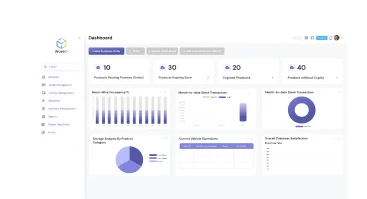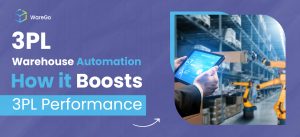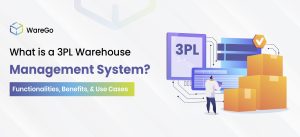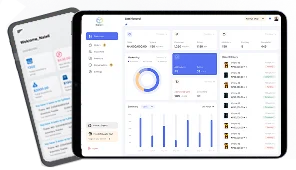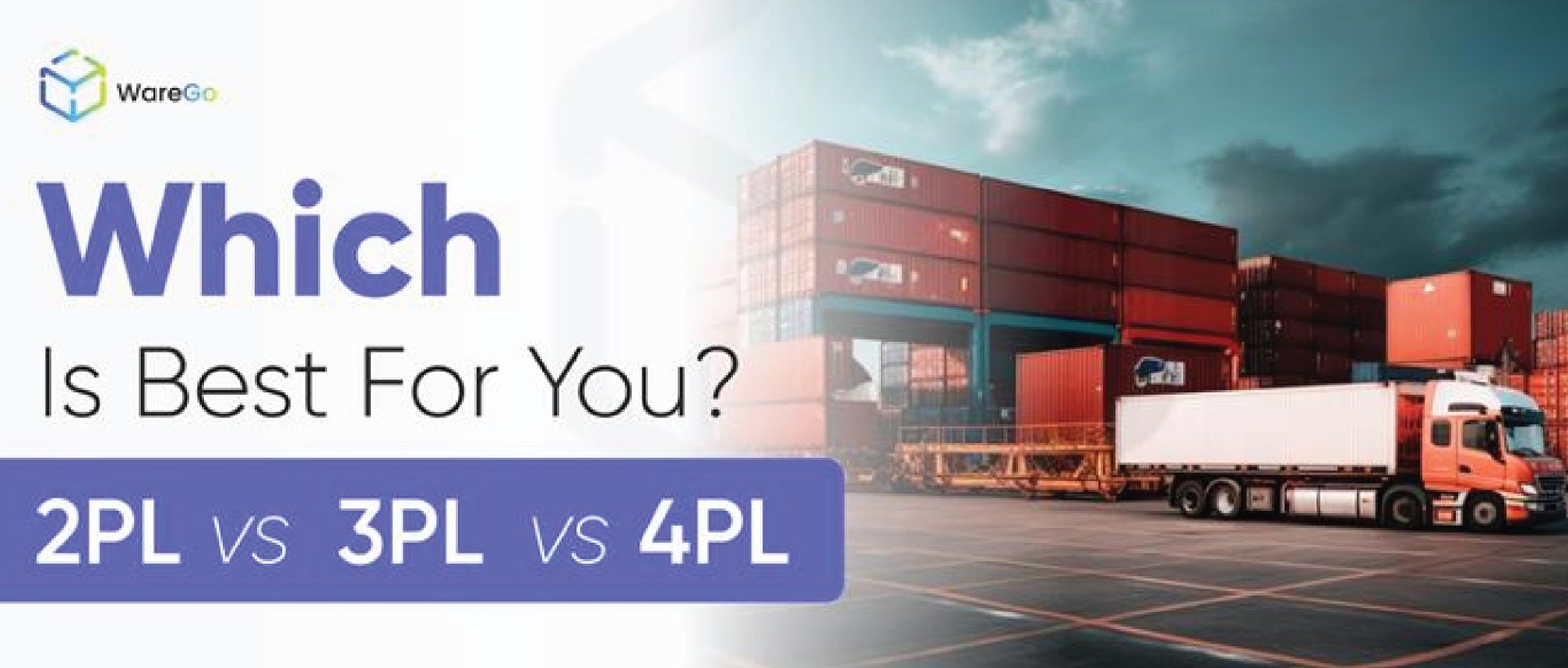
2PL vs 3PL vs 4PL: which one do you need for your business? Depending on your decision, you may have to use a 3PL warehouse management system or 4PL logistics software. WareGo covers both solutions; in fact, it works for virtually any kind of logistics strategy you can think of.
Our friendly professionals would love to explain how WareGo creates real value for your business.
Start My FREE Consultation!The phrase third-party logistics (3PL) is a well-known term for warehousing and fulfillment services. That said, it encompasses different kinds of companies offering a broad spectrum of logistics services.
For many years, large enterprises have made use of third-party logistics to gain supply chain benefits. However, SMEs (small and medium-sized enterprises) are also now increasingly relying on third-party logistics for their daily operations. The meteoric rise of ecommerce is the key driving factor behind this industry shift. For most SMEs, it is far cheaper and simpler to outsource distribution, warehousing, and order fulfillment to logistics specialists instead of dealing with such complexities themselves. This lets them focus on their core business.
While 3PL service providers continue to be the most widely prevalent logistics-focused businesses, there are also others, like 5PL, 4PL, 2PL, and 1PL.
Find out what exactly these services are and the key differences they have with each other.
Table of Contents
1PL, 2PL, 3PL, 4PL, and 5PL – Logistics Models Demystified
Here is a simple explanation for all logistics models along with examples.
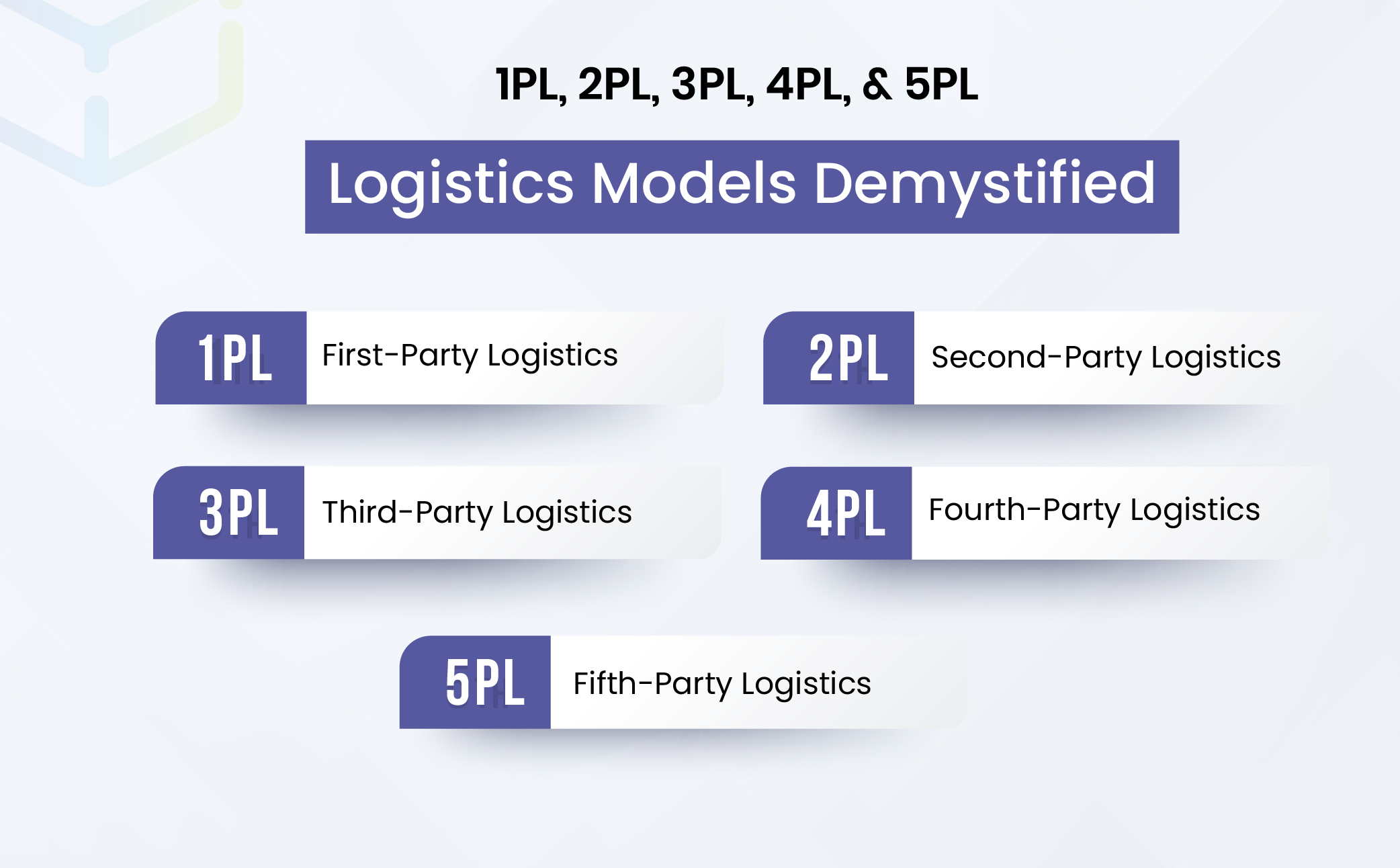
1PL (First-Party Logistics)
1PL or first-party logistics simply means that a company handles all its logistics needs itself using its own resources. It does not rely on outside parties for logistics operations. Be it warehousing, shipping, delivery, or inventory processing, a 1PL company manages everything itself.
For example, if you are a 1PL manufacturer, you will supply your customers (retailers, wholesalers, consumers) yourself without relying on external logistics assistance.
Hence, the 1PL firm will maintain its own vehicle fleet, warehouses, staff, distribution centres, and all other logistics infrastructure and resources.
While this provides the highest level of control, it also entails the greatest complexity with respect to logistics and supply chain management.
WareGo has the full range of features for any business that wants to take charge of its own logistics.
Get your free demo and see our cutting-edge logistics platform live in action.
Start My FREE Demo!2PL – Second-Party Logistics
2PL service providers normally handle a key step of logistics. For example, warehousing operators specialize in running warehouses for order fulfillment. Whereas, trucking companies specialize in transporting goods to different places.
Shipping carriers are another example of 2PL, for these companies specialize in the shipping operations for delivering goods across the world. They must take care of ships, containers, and all other related assets to run their shipping operations.
2PL logistics firms will certainly benefit from the enterprise supply chain capabilities of WareGo.
Find out with a 100% FREE trial.
Start Your Free Trial!3PL – Third-Party Logistics
A 3PL service provider is a logistics specialist that provides a wide range of logistics services to fulfill your logistics and supply chain requirements. A reliable 3PL is basically your partner to whom you can confidently outsource all your logistics.
Hence, a 3PL company provides a broad range of logistics-based services such as:
Warehousing: The 3PL will take care of all warehouse operations and inventory processes.
Fulfillment: They will have warehouse staff who process all your customer orders with speed and accuracy.
Transportation: Besides running their own transport vehicles to ship your goods, the 3PL may coordinate with other freight and shipping services to deliver your merchandise.
Value Added Services: A variety of value-added services are available from the 3PL for efficient fulfillment, like assembly, packaging, kitting, and reverse logistics (returns processing).
Opting for a 3PL service provider to take care of your logistics operations is almost always a smart choice since they are field specialists who have been working in the logistics industry for years and perhaps even decades. Hence, they have the necessary expertise to efficiently manage your logistics and supply chain. Instead of worrying about supply chain complexities, you can focus on managing and growing your core business.
You also save costs since you will not have to build warehouses or buy transport vehicles.
3PL logistics is growing fast courtesy of rising ecommerce. Around 85% of Fortune 500 companies and over 95% of Fortune 100 companies rely on 3PL partners.
3PL services now offer an exceptional level of support thanks to developments in technology. For example, RFID and GPS technology allow real-time tracking of your inventory to give you strong visibility over your supply chain. Another promising technology that is making a big difference to 3PL is IoT. This technology is designed to provide large amounts of data, which you can analyze to gain actionable insights and thus streamline operations.
WareGo extends the full range of functions required by 3PLs.
Our price plans have the most economical rates.
Check price plans!4PL – Fourth-Party Logistics
The 4PL service provider will manage all aspects of your supply chains, but won’t actually run operations – that is the work of 3PL and 2PL companies. Instead, the 4PL will coordinate with your 3PL and 2PL partners so they can work in unison and thus provide streamlined logistics for your business.
Hence, the 4PL will not own warehouses, vehicles, or other logistics assets. They are basically consultants for managing your 3PL and 2PL partners.
The benefit of a 4PL partner is that you don’t have to individually deal with your 3PL, 2PL, freight, shipping, and other service providers. The 4PL service will do it for you.
So the 4PL will bring logistics expertise to the table and let your supply chain partners work effectively for you.
Furthermore, the 4PL partner can help you find the most suitable freight, shipping, and supply chain partners who offer the best rates and terms and the most reliable service quality.
The full array of 4PL capabilities is present in the powerful supply chain suite, WareGo.
Our friendly experts would love to explain what WareGo can do for your business.
Chat With Us!5PL – Fifth-Party Logistics
5PL is a rather new development in the logistics field that is slowly gaining ground. This is an evolution of 4PL since, instead of managing just one client, the 5PL manages the logistics of multiple clients.
The 5PL will optimize and manage the supply chain through ecommerce platforms, data, and cutting-edge technology. Hence, they specialize in providing digital solutions to efficiently manage complex supply networks for multiple clients.
They may use advanced technology like big data and AI models to accurately forecast global demand and adjust the supply network accordingly. Ecommerce platforms and online marketplaces are the key targets for 5PL service providers. 5PLs assist these businesses by optimally integrating suppliers, carriers, and other logistics services for the best possible ecommerce service.
Difference Between 2PL, 3PL and 4PL
The various logistics models shown above (1PL, 2PL, 3PL, 4PL logistics) have different scopes and service offerings. By understanding these differences, you can gain a better appreciation of what each model does for your business. Here is what you need to know about the difference between 2PL, 3PL, and 4PL.
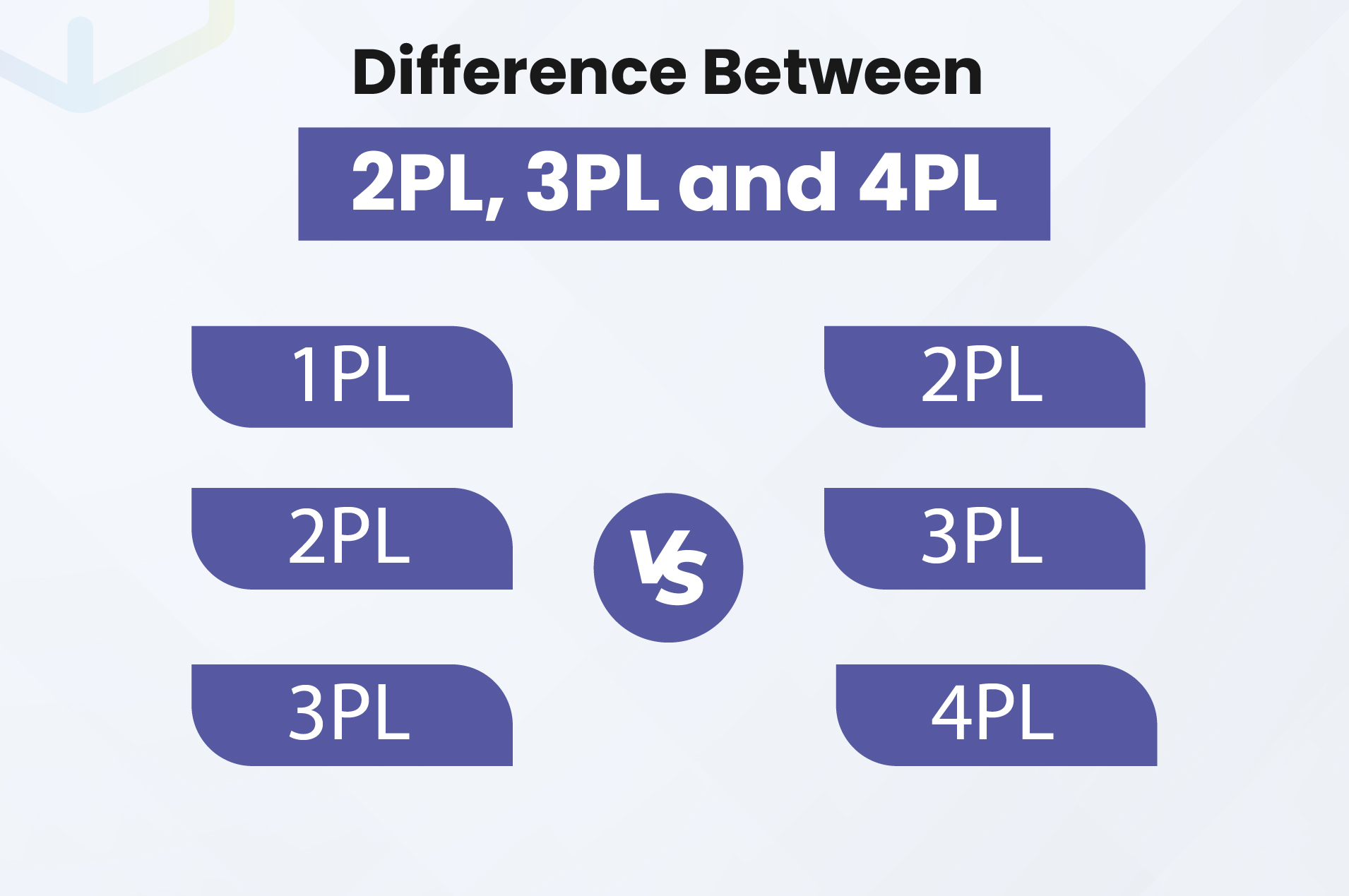
1PL vs. 2PL
These are the most basic logistics types and are hence the easiest to understand. The 1PL model focuses on controlling all logistics assets in-house so that the business does not have to rely on external parties for any of its logistics needs.
Hence, the 1PL business is not actually a logistics specialist. It can, for instance, be a manufacturer that controls all logistics in-house for order fulfillment, shipping, and delivery.
A 2PL business, on the other hand, is a logistics specialist, unlike the 1PL. The 2PL service provides either one of warehousing, transporting, fulfillment, or some other key logistics service to its customers.
So a 1PL business does logistics for itself and is therefore not a logistics specialist. At the same time, a 2PL business is a logistics specialist that provides logistics services for other businesses.
2PL vs 3PL
The 2PL vs 3PL is quite simple.
2PL services often focus on either transportation or warehousing. Most are trucking companies. However, a 3PL service provides the full spectrum of logistics functions, which includes warehousing, transportation, inventory management, and order fulfillment.
In other words, the 3PL has a broader scope of service compared to a 2PL.
So, for a large business, in theory, they can outsource all their logistics functions by hiring multiple 2PL services that cover all their needs. However, coordinating with them all can be quite complex. Hence, hiring a single 3PL can simplify matters since you will have just one vendor to deal with for when it comes to logistics.
3PL vs 4PL
3PL vs 4PL – these logistics services have a few key differences. The 4PL service won’t own logistics assets (like vehicles and warehouses), since it focuses on coordinating all the 3PL and 2PL partners that a client is working with. Hence, a 4PL is not involved in executing daily logistics operations. It just manages 3PL and 2PL partners.
The 3PL service, on the other hand, owns logistics assets (like vehicles and warehouses) and uses these assets (including staff) to directly provide logistics services to its clients, like warehousing, inventory management, transportation, and so on. Hence, a 3PL carries out daily logistics operations.
So while 3PLs focus on daily logistics operations, 4PLs are concerned with managing 3PLs (and even 2PLs) for streamlined logistics.
Hence, 4PLs work at the strategic level, while 3PLs work at the operational/managerial level.
Bottom Line
Now that you understand the key differences between 1PL, 2PL, 3PL, 4PL, and 5PL, you are in a better position to decide which logistics method will suit your business.
But no matter what logistics method you choose, one thing is for sure.
WareGo has everything you need for managing logistics, irrespective of your logistics approach.
Even if you go for a hybrid approach where you require a combination of logistics services using different models, WareGo is up to the task.
So without further ado, reach out to our experts for excellence in supply chain and logistics.
Our friendly experts can explain how WareGo can serve your logistics needs.
Chat With Us!FAQs
What are the 4 P’s of logistics?
The 4 P’s of logistics are as follows:
Planning – Planning includes arranging the supply chain according to forecasts. Hence, forecasting is key to this process, which allows managers to deploy logistics assets to meet the forecasted order volume.
Procurement – involves activities like purchasing finished goods, raw materials, and other materials necessary for running operations. Negotiations with suppliers are vital for obtaining the best rates and terms. Inbound logistics should be optimized for efficient receiving and quality control of inventory.
Positioning – Inventory should be placed carefully for fast picking. ABC classification, serialization, slotting, and other inventory control methods are needed for this. Cycle counts help maintain accurate stock levels.
Processing – Inventory needs to be optimally processed with accurate picking, packing, dispatch, and storage. Day-to-day warehouse operations are part of this processing workflow.
What does 2PL mean in logistics?
These logistics firms specialize in basically one aspect of logistics, like transport or warehousing. Hence, logistics-focused transport companies may include trucking, shipping, airline, railway, and freight companies.
What is the difference between 2PL, 3PL, and 4PL logistics?
2PLs focus on providing limited logistics-based services like transport or warehousing. 3PLs go a step further since they provide multiple logistics-based services like goods transport, warehousing, and inventory processing. 4PLs manage 3PLs and 2PLs for optimal logistics performance and are thus not engaged in executing daily logistics operations.
Which is better: 3PL or 4PL?
If your operational scale is large enough, you will likely need both 3PL and 4PL service providers. No one is necessarily better than the other since they provide different services that are both critical for your operational success.
A 3PL partner takes charge of daily logistics operations like warehousing, transport, and order processing. Your 4PL partner, on the other hand, manages and coordinates 3PL partners (and even 2PL partners) but is not involved in executing daily logistics operations.
So the 4PL partner helps your 3PL and 2PL partners step up their game.
Is 4PL just an upgraded 3PL?
No. 4PL is quite different from 3PL. Your 4PL partner does not partake in day-to-day logistics operations like your 3PL partner does (e.g., warehousing, inventory processing, transport). Instead, the 4PL partner creates a strategy whereby your 3PL and 2PL partners can work more effectively together for your benefit.
When should a business switch from 2PL to 3PL or 4PL?
When order volume and inventory size become large enough, it may be a good time to move on from 2PL to 3PL plus 4PL. Your business grows, managing multiple 2PL partners may become too complex. That is when you need to shift to a 3PL partner who can manage most parts of your logistics (like warehousing and transport). You will still need 2PL partners, like freight and shipping carriers. Hence, you should at this point hire a 4PL service provider to manage 3PL and 2PL partners for a streamlined supply chain.
What are examples of 2PL, 3PL, and 4PL providers?
Here are some examples of 2PL, 3PL, and 4PL services:
2PL – These services are usually concerned with transport and warehousing. E.g., Maersk (shipping) and FedEx Cargo (Air Freight).
3PL – Each 3PL firm carries out daily logistics operations in warehousing, transportation, inventory control, and order processing. E.g., Amazon and ShipBob.
4PL – They manage 3PL and 2PL partners but do not execute daily logistics operations, for example, Accenture.
